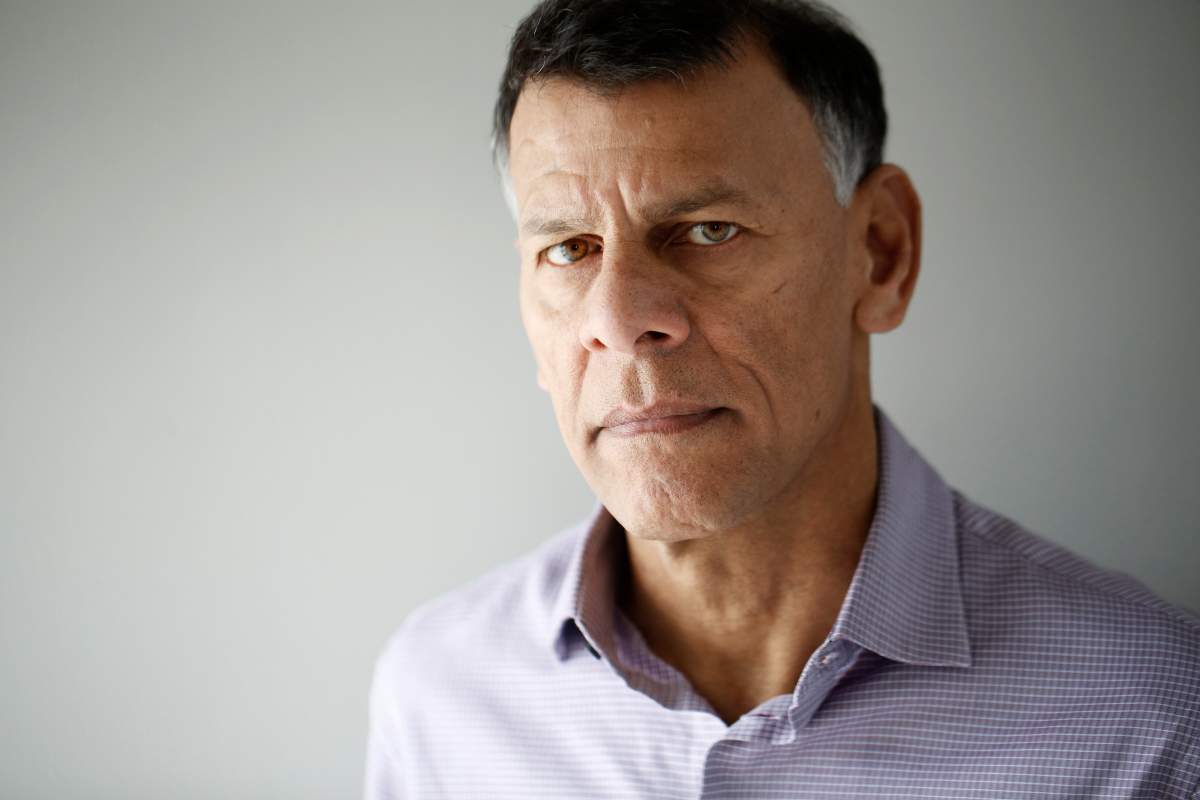Whether you’re figuring out your first career path or looking to change directions, a new series from Global News, Hot Jobs, focuses on career strategy for a new era in work.

When Alicia Vandeweghe graduated from Ryerson University with a master’s degree in communication and culture in 2008, the deep recession discouraged her from continuing on in school.
Her student loans were an inescapable financial weight and she couldn’t stomach the thought of taking on even more loans to go to teacher’s college when job prospects seemed so poor.
“There was an urgency for me to start working,” Vandeweghe says. She gave herself a six-month deadline to find a job and, almost immediately, zeroed in on public sector employment.
A decade later, Vandeweghe ticks off her reasons: decent pay, job security, good benefits and a pension. She also thought she would be more likely to find meaning in public sector work, a feeling she was helping people.
“I wanted the room for growth. I didn’t want to be changing employers every year or two. I wanted that stability. I also wanted to really enjoy what I did.”
She started at Ryerson University on a four-month contract that extended into permanent work. She’s been there a decade, and she isn’t planning to leave. She’s found it fulfilling to help students navigate grad school and found opportunities to be creative, helping out with photography, writing, and helping manage a graphics team.
“I’ll likely retire from here.”

Many people aren’t quite so secure in their jobs. It’s estimated that one in five Canadians work precarious jobs, meaning they work part-time or on contracts with little stability. For those people who are angling for more money and a stable job — where should they look?
For Vandeweghe, clocking out daily at 5 p.m. to get home to her two children is a huge perk. But public sector jobs aren’t always the obvious choice for other people looking for similarly good jobs. You can look at statistics and stereotypes, compare wages, but at the end of the day, Hassan Yussuff, president of the Canadian Labour Congress, says it’s going to depend on what a good job means to you.
Is it just about the zeros on your paycheque? Do you want more paid sick days? What about a pension? Do you care if the computer you’re clacking away on is running software five years outdated? Or if the layers of bureaucracy mean your projects stall for months awaiting approval?
“Most people say a good job is a good salary,” Yussuff says, but, he notes, there is a “broader acceptance” now that people get sick and grow old, so they’re looking for the added security of a benefits package and a pension to retire on — not just a dollar figure.
Still, if boosting the figure on your paycheque is the primary goal, an analysis from the Fraser Institute makes it clear: pick public sector work.

Get weekly money news
It doesn’t mean you have to work directly for the government. While nearly two-thirds of Canadians work in the private sector, roughly 20 per cent work in the public realm, meaning they’re employed by governments of all levels as well as government agencies, crown corporations, and government-funded institutions like hospitals, schools and universities.
They make an average of 10.6 per cent more than their private counterparts, per the 2016 Fraser Institute report, which analyzes 2015 data from Statistics Canada’s monthly labour force survey and includes both unionized and non-unionized jobs. That premium dropped to 7.2 per cent when the Fraser Institute only compared unionized employees.
“The gap is pretty consistent and it’s reasonably high,” says Steve Lafleur, a senior policy analyst with the Institute.
WATCH: Here’s what it take to earn a middle-class income in several cities across Canada

How much more you’re estimated to make varies depending on your job. Contractors and supervisors working in trades and transportation experienced the smallest pay bump working in the public sector (3.7 per cent), while those employed in protective services jobs earned the most (39.5 per cent). Teachers and professors fell in the middle, earning an estimated 15.5 per cent more than their private peers.
Salary aside, there are still plenty of other factors to weigh. Indeed, many of the benefits that drew Vandeweghe to working at a university go well beyond her paycheque. Per the Fraser Institute’s numbers, public sector workers enjoy many other non-wage benefits:
- They’re more likely to have a pension: 89.3 per cent vs. 23.8 per cent in private sector.
- For those who have a pension, it’s more likely to be a defined benefit pension: 93.7 per cent vs. 45 per cent in the private sector.
- They’re less likely to lose their job: a 0.5 per cent likelihood compared with 3.7 per cent in the private sector.
- They’re also likely to retire 2.3 years earlier than their private counterparts.
Those benefits tend to be the work of unions, MacEwen says.
“It’s hard to tease out, but we do know that when the public sector contracts out to non-union shops they don’t have the same kind of benefits or pay.”
In general, Lafleur says, there should be some sort of trade-off between public and private work. In other words, you should be accepting slightly lower pay but more benefits and stability in the public realm while the reverse is true in the private sector.
“But there really isn’t one,” he says. “Across the board, public sector employees seem to be doing better than their private sector cohorts.”

Whether that keeps up, remains to be seen. Governments set public sector wage levels and don’t seem to be doing much to “control the costs” like the private sector does, Lafleur says. Finding ways to be sustainable long-term might force them to lower public wages, he says, given how indebted some provinces are.
“We have some real serious challenges and at some point they have to be reckoned with. We can’t simply decide to not pay our bills forever.”
Helping people in both public and private sectors advance their careers is Meghan Reid’s job. Reid is a registered psychologist and the owner of Canada Career Counselling. She advises people trying to figure out what career they’re ideally suited for. Part of that, she says, is helping some people figure out whether they want to be publicly or privately employed and helping others who are trying to make the shift from one to the other.
WATCH: The best-paying jobs you can get without a university degree

While the 2016 Fraser Institute report indicates the average public employee makes nearly 11 per cent more than those in the private sector, Reid says for some jobs the private sector tends to pay up to a quarter more. Whether someone wants those jobs usually depends on their personality and preferred lifestyle. The public sector tends to reel in those looking for stability, she says, while the private sector tends to attract the risk takers.
“If people really want to make a big impact, have influence, get things done… they’ll often want to move into the private sector,” Reid says. Private employers attract “high-achieving, type-A people,” while the public is more likely to attract “balanced, stable, more risk-averse people,” she said.
Common complaints from those looking to leave the public sector often revolve around outdated technology and cumbersome bureaucracy, she says.
“Independence and autonomy and being able to get things done is a big push,” Reid says. “People who come from public are often like, ‘Oh my gosh, things are so slow moving, I need to get through 20 layers of approval before I can actually do anything so stuff doesn’t get done and it drives me nuts.’”

It’s important to recognize that what people want often changes as they get older, MacEwen says. In some cases, when people are able to, they’ll start in the private sector, where “it’s really demanding and hectic and hard to have a work-life balance,” and then transition to public when they’re ready to have a family.That balance is key for Vandeweghe.
Jobs with evenings and weekends? “That was a no-go,” she says. “Not being able to see my kids? No job is worth that to me.”
Still, Vandeweghe didn’t start with full-time work. Even in the public sector, she started on a contract that was extended before ultimately turning into a permanent role. That’s becoming more and more common, MacEwen says, in addition to increasing use of temp agencies in the public realm.
People seem to accept that in the private sector, MacEwen says, but public perception still seems to be that government work is more stable.
“This is something we’re trying to wrap our heads around globally: how to make jobs more secure and how to move past this kind of gig economy.”
It would help, Yussuff says, if governments got on board and stepped up employment standards regulations to address the reality of precarious work.
“Precarity is now the underpinning of this new economy,” he says. “Employers believe they don’t necessarily have to put people on their payroll, they don’t have to treat them the same.”











Comments
Want to discuss? Please read our Commenting Policy first.